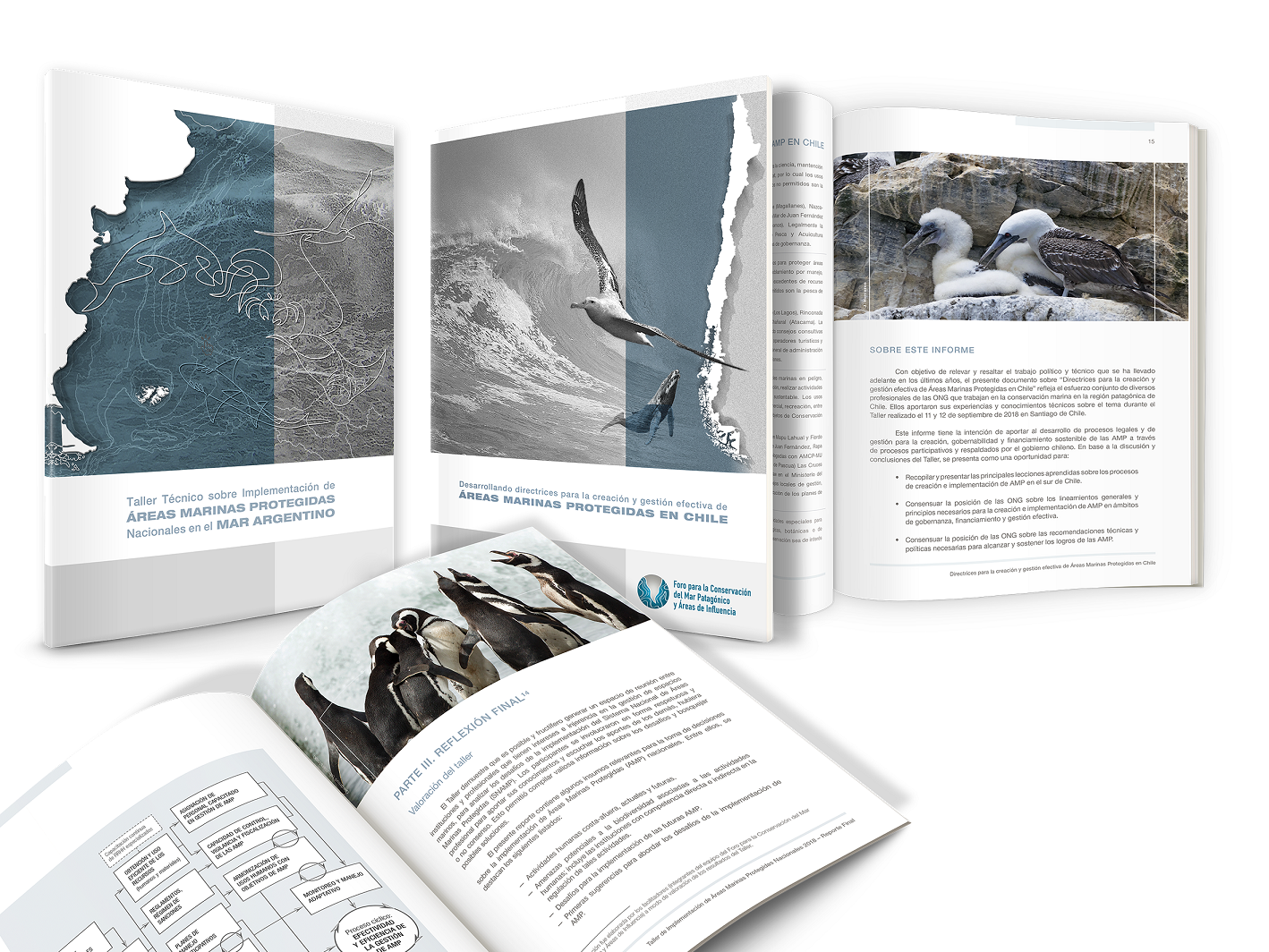Countries of the Southern Cone are making significant progress in the declaration of new Marine Protected Areas. We celebrate the great advances achieved by governments, communities and organizations. We continue promoting the effective management of Marine Protected Areas through the design of capacity building strategies, the production of innovative tools for monitoring and implementation, and the identification of new management mechanisms for a stronger governance of the sea.
June 8 – Identifying, creating and managing an effective network of protected sites at sea is one of the greatest challenges to contribute to the conservation of marine biodiversity. Chile and Argentina made significant progress towards meeting the international goal that promotes the protection of at least 10% of the marine surface by 2020. In 2018, through the declaration of new Marine Protected Areas (MPA), Chile exceeded 40% and Argentina tripled their values exceeding 8%. These are significant achievements, but not yet enough. On the one hand, there are still challenges to expand their coverage to ecoregions and ecosystems not represented.
On the other hand, most of the declared MPAs are not fully implemented, which means that they can not effectively prevent or reduce the negative impacts on species, ecosystems and ecological processes relevant to the health of the ocean. As it is an issue recently incorporated in the scope of the Governments, it is necessary to strengthen the capacity for governance and management of States. For example, the supervision of human activities and the monitoring of environmental indicators are still insufficient, as well as the necessary funds or the provision of specialized personnel and adequate equipment to ensure effective management.
The gradual solution of these challenges will allow for effective national MPA systems, capable of guaranteeing valuable ecosystem services and adapting to climate change. “True conservation begins when governments reflect will and societies understanding. The recent significant progress of the protected area of the Patagonian Sea shows this. Today, we must ensure that these milestones are honored and that Marine Protected Areas, current and future, fulfill their purpose. Once created, we can not leave them adrift”, said Claudio Campagna, president of the Forum for the Conservation of the Patagonian Sea.
How to protect marine “protected” areas
The identification, prioritization and analysis of possible ways to improve the performance of MPAs were systematized in two new publications presented by the Forum for the Conservation of the Patagonian Sea -the network of 24 civil society organizations for marine conservation of the Southern Cone. Both materials are part of their project “An integrated effort for the conservation of the biodiversity of the Patagonian Sea”, supported by Oceans5.
In the case of Argentina, the Report on the “Technical Workshop on Implementation of National Marine Protected Areas in the Argentine Sea” contains relevant inputs for decision-making contained in 5 axes: (a) human activities offshore, (b) ) potential threats to biodiversity, (c) competent government agencies, (d) challenges for the implementation of marine protected areas and (e) suggestions to address the challenges of implementing MPAs in relation to governance aspects (institutional articulation ), financing, regulatory framework, scientific research, development of institutional capacity, control, oversight and monitoring.
In the case of Chile, the technical report “Developing guidelines for the creation and effective management of Marine Protected Areas in Chile” constitutes a compilation of the consensus of civil society regarding the main results and lessons learned on the creation of MPAs in Chile. pointing out recommendations for its effective management. It seeks to contribute to the development of legal and management processes for the creation, governance and sustainable financing of MPAs through participatory processes, supported by the Chilean government.

A common approach to protect the Patagonian Sea
The main objective of MPA is the conservation of biodiversity through sustainable processes that occur in the ocean on a large scale. Therefore, the different actors that, directly or indirectly, have responsibilities in the conservation of the sea in general, and of MPA in particular, should join forces to build a new paradigm of conservation.
The value of the documents presented is based on the cooperation and collaboration of professionals and experts with experience and action in the management of the sea. The content proposed for Argentina was obtained from the consensus of more than 40 professionals and officials who participated in a workshop convened in September 2018, under the auspices of government institutions and under the coordination of the Forum. In the case of Chile, the conclusions of the Report emerged from the Workshop held among chilean civil society organizations focused on marine conservation, in September 2018, including WCS, WWF, The Pew, Costa Humboldt, NatGeo, Tompkins Conservation, Omora Foundation and Meri Foundation.
“The challenges we face are so great that require the coperation of all the sectors involved. No organization or sector in isolation could address them effectively. With this premise, 15 years ago the Forum was born, uniting civil society, and promoting collaboration with governments, communities and researchers”, recalls Alexandra Sapoznikow, Forum Coordinator. “Our fundamental collective purpose is to collaborate, through expert knowledge and the contribution of technical tools, towards greater effective and sustainable protection of biological diversity, the environments and uses of the Patagonian Sea”, concluded.